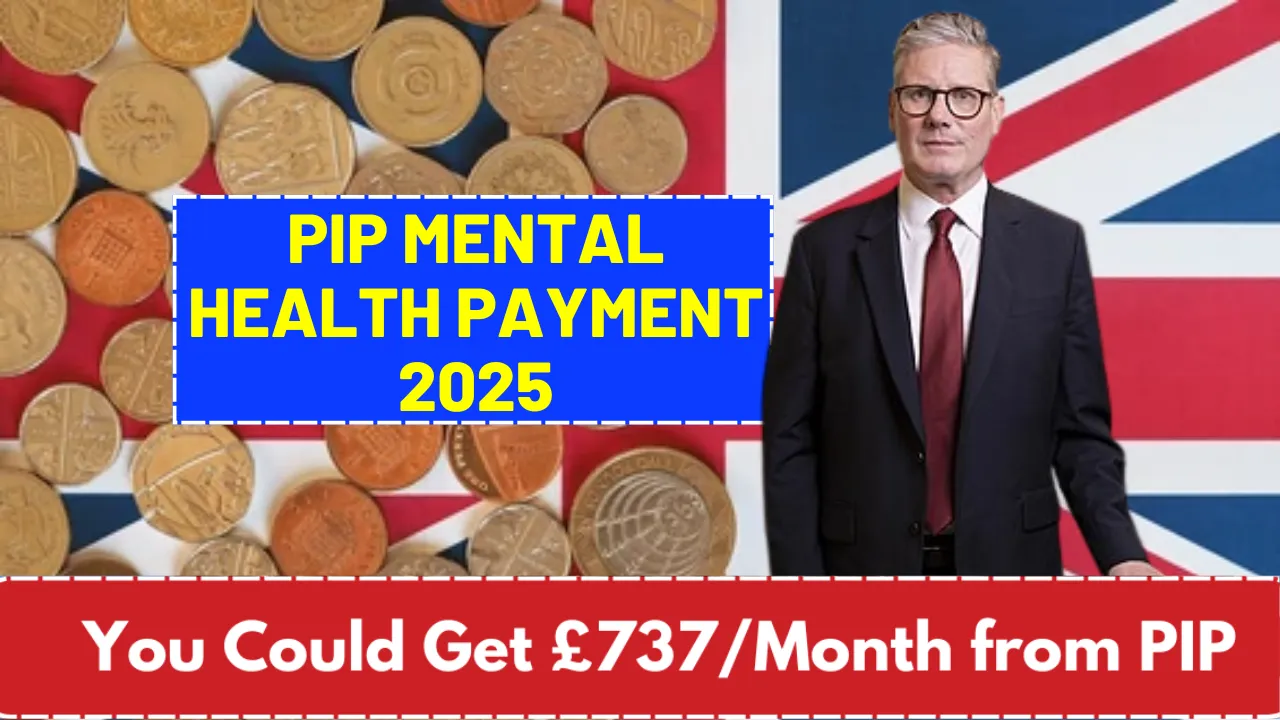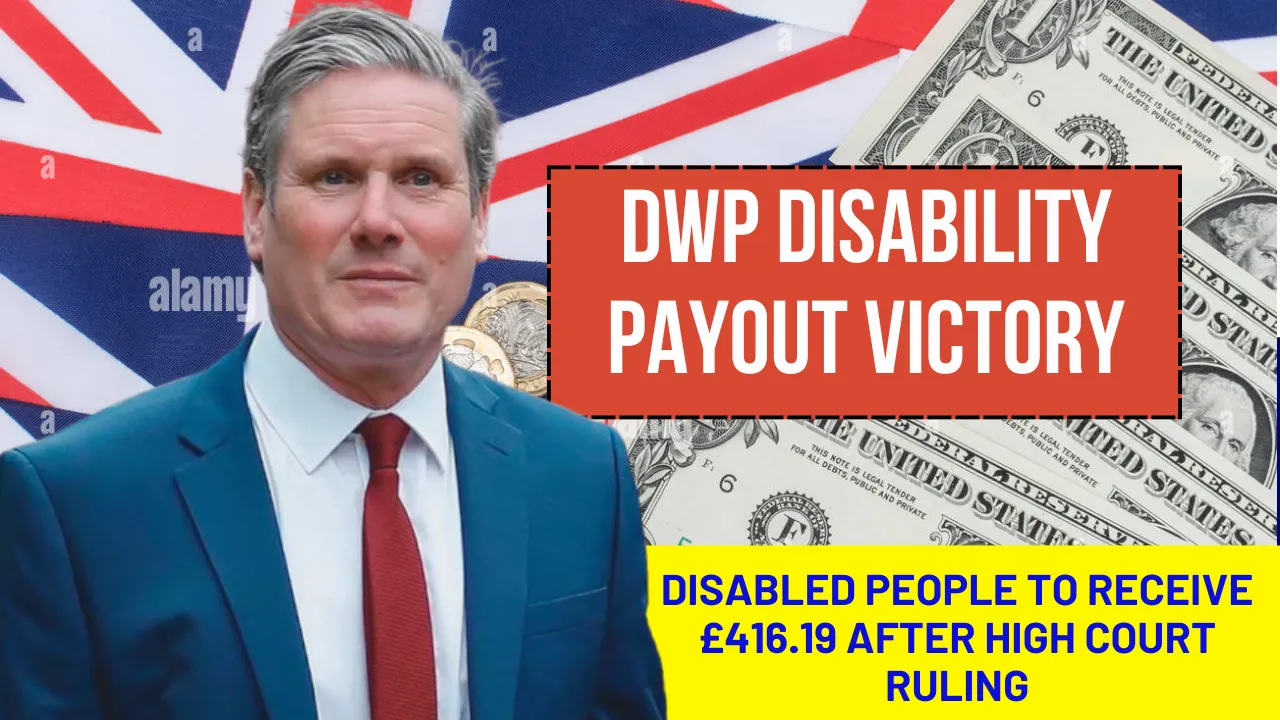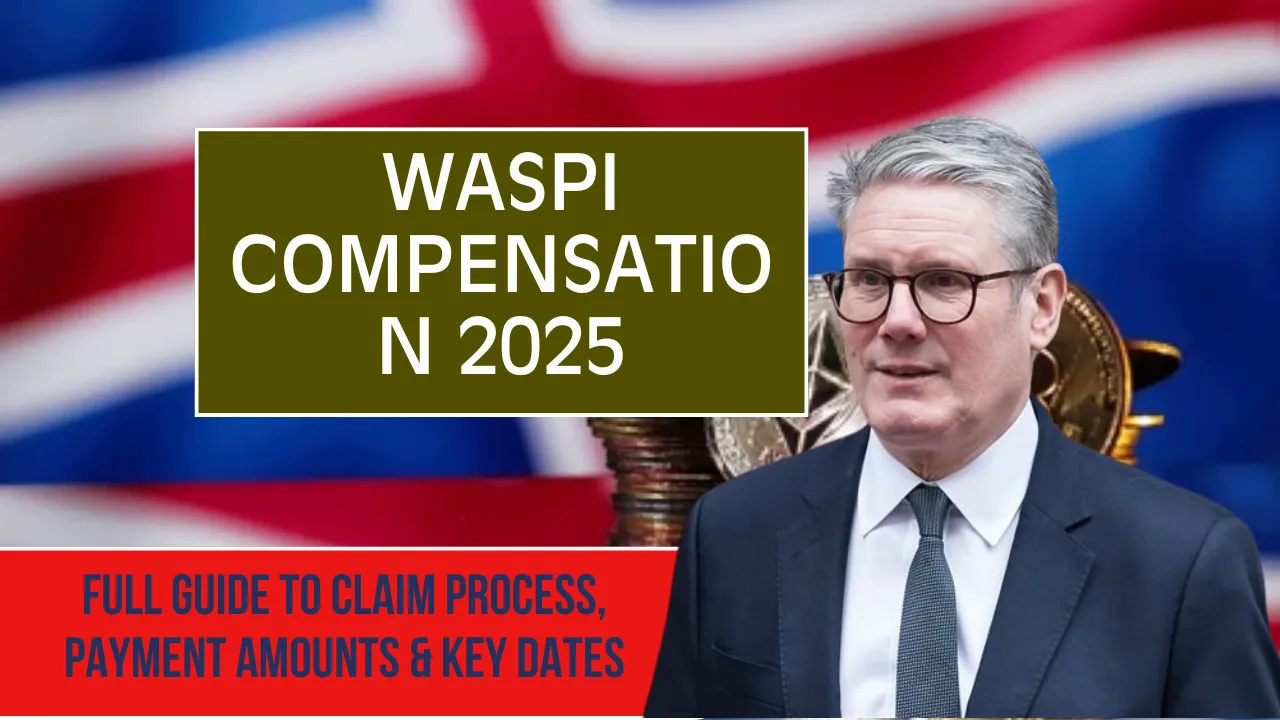PIP Mental Health Payment 2025: For millions across the UK, the Personal Independence Payment (PIP) offers crucial financial support—especially for those living with mental health challenges. In 2025, individuals suffering from conditions like depression, anxiety, bipolar disorder, and PTSD could receive up to £737.20 every four weeks through PIP Mental Health Payment. This benefit not only supports day-to-day living but also connects claimants to other essential services and discounts.
Understanding how to apply for PIP, what evidence is needed, and how to avoid disruptions to your payment is vital. Whether you’re a new applicant or already receiving PIP, staying informed could make all the difference.
PIP Mental Health Payment: Who Qualifies and What to Expect
The PIP Mental Health Payment is designed to support individuals aged 16 and above who are not yet at State Pension age and struggle with daily tasks or mobility due to long-term mental health conditions. You can receive one or both components of the payment depending on how your condition affects you.
To qualify:
- Your condition must have impacted you for at least 3 months.
- It must be expected to continue for at least 9 more months.
- You must have lived in the UK for 2 of the last 3 years.
PIP Overview 2025 – Quick Facts Table
| Feature | Details |
| Maximum PIP Payment | £737.20 every four weeks (as of April 2025) |
| Components | Daily Living and Mobility |
| Eligible Age Group | 16 and above (below State Pension age) |
| Mental Health Conditions Covered | Depression, anxiety, PTSD, OCD, bipolar disorder, and more |
| Assessment Focus | Impact on daily activities and mobility, not diagnosis alone |
| Application Method | Via DWP phone line or online, followed by assessment |
| Award Duration | Typically between 1–10 years depending on severity and review schedule |
| Payment Frequency | Every four weeks |
| Additional Benefits | Housing support, Council Tax reductions, travel discounts, and more |
Mental Health Conditions Eligible for PIP
The DWP recognises various mental health conditions that may qualify for PIP. Some of the most common include:
- General anxiety disorder
- Depression or mood disorders
- Post-traumatic stress disorder (PTSD)
- Obsessive-compulsive disorder (OCD)
- Bipolar disorder
- Cognitive disorders and learning disabilities
Eligibility isn’t based solely on a diagnosis. Instead, assessors focus on how the condition limits your ability to complete everyday tasks like cooking, bathing, or managing money.
Key Tasks Assessed by DWP for PIP
During the PIP evaluation, you’ll be assessed on your ability to complete several daily activities, including:
- Preparing and cooking meals
- Managing treatments or medication
- Personal hygiene and dressing
- Communication and understanding information
- Handling finances
- Social interaction
- Planning and following journeys
The more assistance or support you need with these tasks, the higher your potential award.
PIP Payment Amounts in 2025
PIP is divided into two components: Daily Living and Mobility. Depending on your assessment results, you can receive either or both.
| Component | Weekly Maximum | Monthly (4 weeks) |
| Daily Living | £103.48 | £413.92 |
| Mobility | £80.82 | £323.28 |
| Total Maximum | £737.20 |
These amounts are tax-free and not impacted by employment income, making them accessible to both working and non-working individuals.
Other Benefits You May Be Entitled to with PIP
Receiving PIP can unlock access to a range of other support services, including:
- Housing Benefit or housing element of Universal Credit
- Council Tax reductions
- Free or discounted travel (e.g., Blue Badge, disabled railcard)
- Access to the Motability Scheme
- Exemptions from certain charges, like prescription fees
These additional benefits make it even more important to claim PIP if you qualify.
How to Apply for PIP in 2025
If you think you qualify for PIP, here’s how to apply:
- Start Your Claim
Call the PIP claim line or begin the application online at gov.uk. - Provide Personal Information
You’ll need your National Insurance number, date of birth, and contact information. - Complete the “How Your Disability Affects You” Form
This is where you describe how your condition affects your daily life. - Submit Supporting Evidence
Include GP letters, therapist notes, prescriptions, or care plans. - Attend a Health Assessment
These are usually done via phone, video call, or face-to-face, depending on your location and needs.
How to Avoid Losing Your PIP Mental Health Payment
To maintain your benefit and avoid interruptions:
- Report any changes in your health or contact information promptly to the DWP.
- Respond quickly to requests for information or assessments.
- Submit renewals on time—mark your calendar for award end dates.
- Keep copies of any documents submitted and record the dates you send them.
- Attend reassessments and provide updated evidence if your condition worsens or improves.
Missing deadlines or ignoring letters can lead to payment delays or cancellations.
Financial Management Tips While Receiving PIP
To make the most of your payments:
| Strategy | Details |
| Budgeting | Use free apps to track expenses and income |
| Smart Spending | Prioritise essentials like rent, food, and utilities |
| Build an Emergency Fund | Save a small amount regularly to prepare for unexpected costs |
| Debt Management | Contact debt charities for advice if you’re struggling |
| Learn About Support | Know what additional local or national schemes are available |
Conclusion
The PIP Mental Health Payment in 2025 provides vital financial support for individuals dealing with psychiatric and cognitive conditions. With up to £737.20 available every four weeks, it’s one of the most significant disability benefits in the UK. But applying correctly and staying compliant with DWP requirements is essential.
Whether you’re already receiving PIP or planning to apply, make sure your paperwork is in order, stay aware of deadlines, and don’t hesitate to ask for help. Every eligible individual deserves to receive the support they need to live with dignity and independence.
FAQs
Q: What is the maximum PIP payment I can get in 2025?
A: You could receive up to £737.20 every four weeks, depending on your assessment.
Q: Does mental health qualify for PIP?
A: Yes. Mental health conditions like anxiety, depression, and PTSD are fully considered.
Q: Can I receive PIP and still work?
A: Absolutely. PIP is not means-tested and doesn’t depend on income or employment status.
Q: How do I submit evidence for my application?
A: Include GP letters, therapist reports, and details on how your condition affects your daily life.
Q: How long does it take to get a PIP decision?
A: It typically takes 8 to 16 weeks, though this can vary depending on the complexity of your case.







